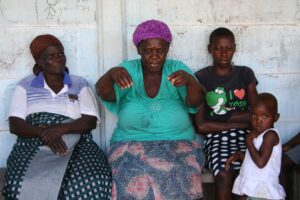
Across Gweru’s 19 urban wards and neighbouring Vungu rural wards, GRRA initiatives show how empowering women, youth and people with disabilities (PWDs) is improving governance and daily services.
Disability inclusion moved forward through creation of a PWDs customer‑care inquiry desk, hailed locally as a first, giving differently abled residents a direct channel for billing and service queries. Yet monitoring shows operational challenges remain, reinforcing the need for sustained oversight. Parallel youth dialogues confronted drivers of drug abuse and secured council commitments to protect land for recreational facilities and improve public lighting, enhancing safety.
GRRA has trained 100+ Service Delivery Champions on constitutional rights, councillor roles, advocacy techniques and budget tracking so communities can influence decisions directly. Champions now report sewer bursts, sit on thematic committees and liaise with departments for rapid problem‑solving, fundraising for water infrastructure and leading clean‑ups without needing to route every issue through GRRA.
Tangible service gains are visible. Council responded to water insecurity by installing solarised boreholes in Mtapa, Mkoba and Ascot, supported by borehole committees for order and maintenance. After sustained advocacy, the long‑neglected Machaya sewer line in Mkoba 4 was resuscitated, reducing health risks from years of contamination. Street lighting upgrades and a structured refuse collection schedule, including long‑neglected Woodlands, are improving security and cleanliness.
Rights‑holder/duty‑bearer interfaces, radio talks and petitions strengthened civic voice. Residents halted punitive property attachments, shifting policy toward negotiated payment plans that protect vulnerable households while sustaining revenue. Budget advocacy secured implementation of a council resolution reducing fixed estimated domestic water charges from 20kl to 15kl (high‑density) and blocking a proposal to bill in USD that would have burdened RTGS‑paid households. Residents also drove innovations in accountability, such as submitting their own meter readings to correct bills, enhancing trust and payment compliance.
Persistent accessibility gaps in budget consultations for example, lack of braille formats and unsuitable venues, underscore the need for more inclusive processes so PWDs and other groups can shape resource allocation. To embed progress, GRRA strengthens ward structures, forges partnerships and promotes effective financial management and procurement policies, anchoring institutional, social and financial sustainability beyond individual projects.
These collective efforts illustrate a simple truth: empowering women, youth and PWDs builds accountable institutions and delivers concrete improvements, from boreholes and sewer repairs to fairer billing, benefiting every household in Gweru. When marginalized voices rise, our entire city thrives.